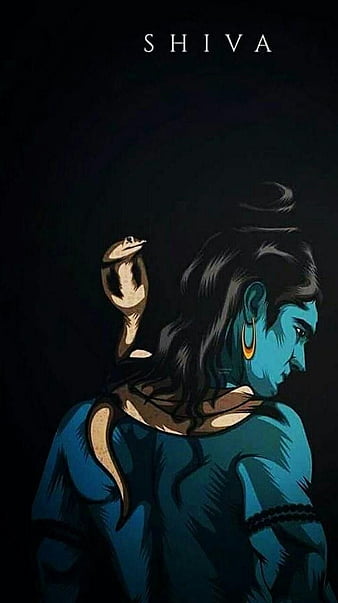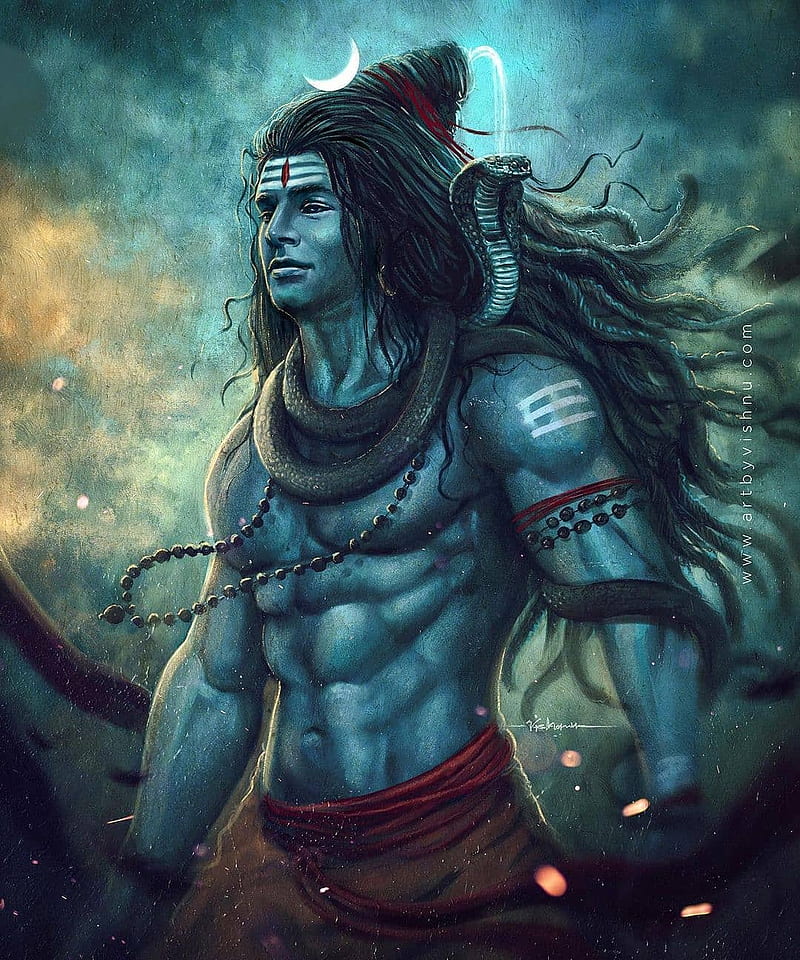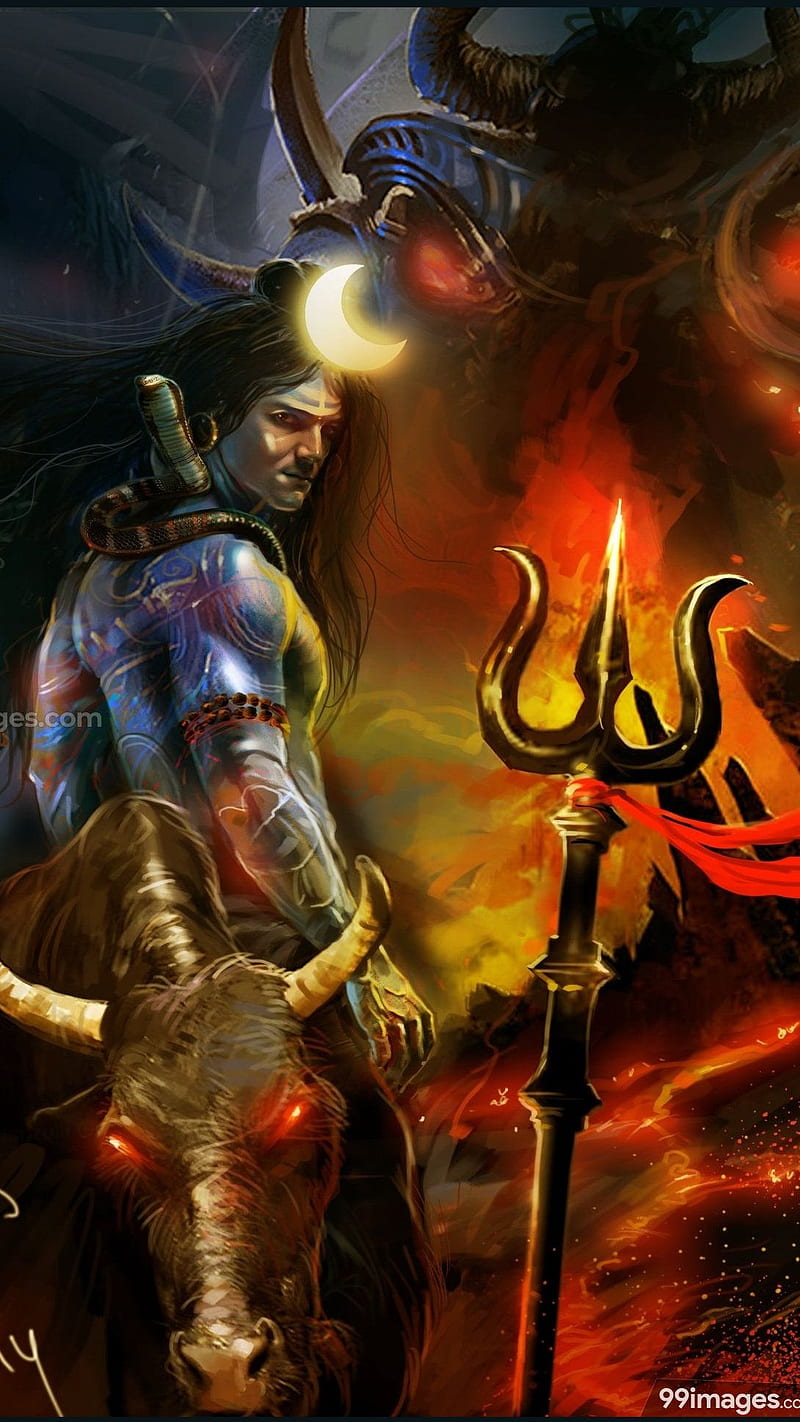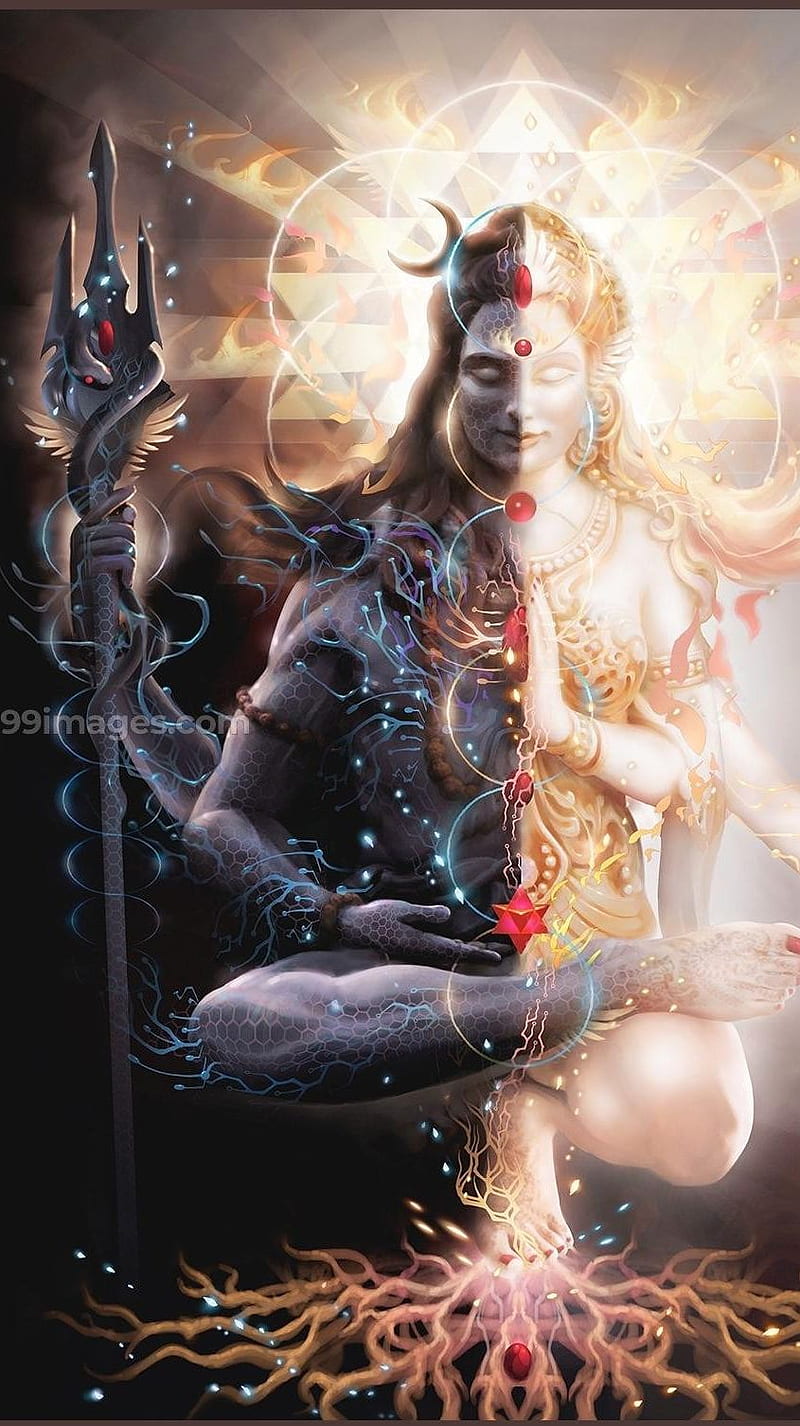Shiv Ji, also known as Mahadev - Lord Shiva, one of the most revered deities in Hinduism, holds a special place in the hearts of millions of devotees across the world. e is considered to be the destroyer of evil and the transformer of the universe. From his depiction as the destroyer of evil to his representation as the embodiment of supreme consciousness, Lord Shiva encompasses many facets of divine existence. Lord Shiva encompasses many facets of divine existence. The worship of Shiv Ji has been prevalent in India for thousands of years and continues to be so today. People across the country recite the Shiv Chalisa, perform the Shiv Aarti, and admire the powerful Tandav dance of Shiv Ji to seek his blessings and protection.

In this article, we will delve deeper into the world of Shiv Ji and understand the significance of the various rituals and traditions associated with Lord Shiva's worship...
Shiv Ji - An Overview
Shiv Ji is one of the three main gods in Hinduism, along with Brahma and Vishnu. Lord Shiva is depicted as a powerful and majestic deity with a blue throat, which represents his power to destroy evil. Shiv Ji is often depicted as a naked ascetic, carrying a trident, and surrounded by serpents. In Hindu mythology, Lord Shiva is married to the goddess Parvati and is the father of the Hindu god of fertility, Lord Ganesha.
The Significance of Lord Shiv
Shiv Ji is the third god in the Hindu triumvirate, which includes Brahma, Vishnu, and Mahesh, or Shiv. While Brahma is the creator of the universe, Vishnu is the preserver, and Lord Shiva is the destroyer. However, the word "destruction" does not have a negative connotation in Hinduism. Instead, it signifies the end of a cycle and the beginning of a new one. Thus, Shiv Ji is revered as the transformer of the universe and the destroyer of evil.

Lord Shiva is also known as the Lord of Yoga and the Lord of Meditation. Shiv Ji is depicted as a yogi who is in deep meditation, seated on a tiger skin and surrounded by his disciples and devotees. Shiv Ji is considered to be the epitome of peace and tranquility, and his worship is believed to bring inner peace and spiritual enlightenment.
The Many Forms of Lord Shiva
Shiva Ji is considered a multifaceted deity and is revered in many different forms, each with its unique significance and symbolism. One of the most popular forms of Lord Shiva is the lingam, a phallic symbol that represents the universe in Hinduism.

Another popular form is the Nataraja, a depiction of Shiv Ji as the Lord of Dance, who is believed to perform the cosmic dance of creation, preservation, and destruction.
The Attributes of Shiv Ji
Aside from his various forms, Lord Shiva is also associated with several attributes that reflect his divine nature. For example, Shiv Ji is often depicted holding a trident, which represents his power to conquer evil and protect his devotees. Lord Shiva is also depicted wearing a snake around his neck, symbolizing his mastery over both life and death. In addition, Lord Shiva is considered the patron of yoga and meditation, and is often depicted in a state of deep contemplation.
The Mythology of Lord Shiv
The mythology of Lord Shiva is rich and varied, encompassing many different stories and legends that have been passed down through the ages. One of the most famous myths about Shiv Ji is the story of the Great Dissolution, in which he is said to have consumed the poison that arose from the churning of the ocean of milk. This act saved the world from destruction and earned him the title of "Neelkanth," or "blue-throated one."

Another popular myth about Shiv Ji is the story of his marriage to Parvati, the daughter of the mountain king. This tale is said to illustrate the union of the individual soul with the divine and serves as a reminder of the importance of devotion and dedication in one's spiritual path.
The Teachings of Shiv Ji
In addition to his mythology, Lord Shiva is also revered for his teachings and the wisdom that he imparts to his devotees. One of the most important teachings of Shiva Ji is the importance of self-realization and the attainment of supreme consciousness. According to Hindu philosophy, Lord Shiva represents the ultimate reality and the state of pure being, and his teachings are aimed at helping his devotees achieve this ultimate state.

Another important teaching of Shiv Ji is the importance of detachment and surrender in one's spiritual path. By letting go of attachment to the material world and surrendering to the divine, Lord Shiva teaches his devotees to find peace and freedom in their lives.
Recently Asked Questions - Shiv Ji FAQ's
Signs that Lord Shiva is with you?
What are the different forms of Lord Shiva?
Shiva God of Destruction?
Lord Shiva is often referred to as the "God of Destruction" because he is considered to be the destroyer of evil and the transformer of the universe. However, this title should not be understood in a negative sense, as destruction in Hinduism signifies the end of a cycle and the beginning of a new one.
Who is Lord Shiva's father?
Lord Shiva is not considered to have a father in the traditional sense. According to Hindu mythology, he is one of the three main gods in Hinduism and is considered to be eternal and self-created
Who is Lord Shiva's daughter?
Lord Shiva and his wife, the goddess Parvati, have two sons, Lord Ganesha and Lord Kartikeya, as well as two daughters, Ashokasundari and Mandaladevi.
How Lord Shiva died?
Lord Shiva is considered to be an eternal and immortal deity in Hinduism and therefore, he does not die. He is considered to be the ultimate reality and the state of pure being, and his presence is believed to pervade the entire universe.
Conclusion
In conclusion, Lord Shiva, also known as Shiv Ji or Mahadev, is a revered deity in Hinduism, holding a special place in the hearts of millions of devotees around the world. He embodies many facets of divine existence and is revered as the destroyer of evil, transformer of the universe, Lord of Yoga and Meditation, and the patron of self-realization and supreme consciousness. Through his mythology, teachings, and different forms and attributes, Lord Shiva represents the ultimate reality and serves as a source of guidance and inspiration for his devotees. Worshiping Shiv Ji continues to be an important aspect of Hindu tradition and is believed to bring peace, spiritual enlightenment, and protection from evil.
